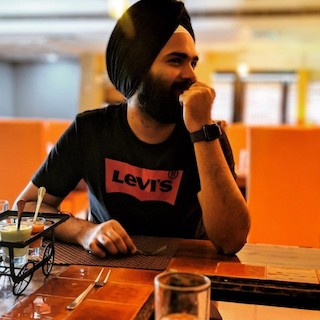Looking Back at the First Ever RW Bootcamp in 2020
Registrations for the 2020 RW Bootcamp have now closed. Check out the raywenderlich.com Accelerator Bootcamp (link below image) for current learning opportunities for iOS, Android and Flutter devs!
From May 25 to August 20, 2020, we ran our first-ever RW Bootcamp, where people new to coding learned how to be successful mobile developers. There were a limited number of Student Scholarships available — you can find the full details on the schedule, the curriculum, and how people applied for a Student Scholarship below.
How Did the 2020 RW Bootcamp Work?
Each week, bootcamp students attended live sessions led by our mentors, watched videos from our iOS and Android learning paths, and worked through some coding exercises as homework. The live sessions consisted of a small, focused group of 10 students, so they got to know some of the other students along the way!
The week started off with a live session with their mentor. Students then took the next two days to work through the video course for that week, then had another mid-week live session with their mentor. They then worked through the assignments for the remainder of the week, and started it all again on Monday!
Here’s a diagram illustrating the structure of a week in the RW Bootcamp:
These intense bootcamps were designed for people who needed a leg up into the mobile development world, and who wanted to take advantage of any extra time they had to help advance their career.
As such, these bootcamps were 100% free; the only way to get in was to apply for and receive a student scholarship to the bootcamp.
What Was the Curriculum for the 2020 RW Bootcamp?
The 2020 RW Bootcamp cirriculum was based upon a curated set of video courses from our Beginner learning paths. Students didn’t need a subscription to raywenderlich.com to participate. All students accepted into the bootcamp received a free, three-month raywenderlich.com Beginner Subscription to access the courses, so they didn’t need to be a subscriber to apply!
2020 iOS Curriculum
Here’s what we covered in the iOS Bootcamp:
- Week 1 (May 25): Controls, Outlets, UIKit
- Week 2 (Jun 1): Swift Fundamentals
- Week 3 (Jun 8): Swift Functions & Types
- Week 4 (Jun 15): Layout, Testing, and Debugging
- Week 5 (Jun 22): Table Views
- Week 6 (Jun 29): Collection Views
- Week 7 (Jul 6): SwiftUI
- Week 8 (Jul 13): Saving Data
- Week 9 (Jul 20): Networking & Design Patterns
- Week 10 (Jul 27): Concurrency & Memory Management
- Week 11 (Aug 3): Animation, Xcode Tips & Tricks
- Week 12 (Aug 10): Capstone project!
- Week 13 (Aug 17): Graduation week
2020 Android Curriculum
And here’s what we covered in the Android Bootcamp:
- Week 1 (May 25): Basic Kotlin
- Week 2 (Jun 1): Advanced Kotlin
- Week 3 (Jun 8): Android Studio, Android, XML, Views, Activities
- Week 4 (Jun 15): Multiple Activities, Intents, AndroidX, Dialogs, FAB, SharedPreferences Activity results
- Week 5 (Jun 22): SharedPreferences, Files, SQL, Room, MVP/MVVM
- Week 6 (Jun 29): Threading, Concurrency, Thread Switching, Main Thread, Coroutines (basics)
- Week 7 (Jul 6): Networking, Network status/info, HTTP, REST, JSON, Retrofit
- Week 8 (Jul 13): WorkManager, DownloadManager, Services, AsyncTask, JobScheduler, AlarmManager
- Week 9 (Jul 20): Coroutines (in depth), Testing with Mockito, Jetpack (some components)
- Week 10 (Jul 27): MVVM, Unit Tests, Data Binding
- Week 11 (Aug 3): Dependency Injection, Koin, Dependency Management
- Week 12 (Aug 10): Capstone project!
- Week 13 (Aug 17): Graduation week
When Did the 2020 Bootcamps Take Place?
This was an intense and focused bootcamp, and we expected that coursework for each student would take 20-25 hours per week. The two live video chat sessions each week were mandatory. These were the schedules:
-
iOS Bootcamp:
- Start-of-week session: Mondays @ 9:30 – 10:30 PM EST
- Mid-week session: Thursdays @ 9:30 – 10:30 PM EST
-
Android Bootcamp:
- Start-of-week session: Mondays @ 1:00 – 2:00 PM EST
- Mid-week session: Thursdays @ 1:00 – 2:00 PM EST
The bootcamps ran from 25 May to 20 August.
How Did Developers Apply for a Student Scholarship?
We could only accept a maximum of 40 students in each bootcamp to maintain a healthy student-mentor ratio of 10 students to 1 mentor.
The deadline for applying to RW Bootcamp was 12 midnight EST on Monday, May 18, 2020.
We hoped that this bootcamp will make a huge difference the lives of our students. And in fact, many received job offers as mobile devs after they completed the bootcamp! :]
Was the 2020 Bootcamp Recorded?
Sort of. You can watch recordings of the main bootcamp sessions here:
Note that the small group breakout sessions were not recorded, only the main sessions.
However, I’m not sure how easy it will be to follow the bootcamp on your own, because the bootcamp was designed to be an in-person experience (with interactive small group breakout rooms, graded homework, and such). It is at least helpful in giving you a structured order to follow through our iOS and Android learning paths! :]
2020 iOS Mentors
Meet the mentors who led these bootcamps:

Jeff Rames was the Lead iOS Mentor. He’s been developing iOS applications professionally for about a decade. A long-time RW author and technical editor, he has a passion for sharing his knowledge through mentorship. He spends his free time with his wife and daughters, except when he abandons them for trips to Cape Canaveral to watch rockets being launched into space. Say hi on Twitter.

Audrey Tam retired at the end of 2012 from a 25-year career as a computer science academic. Her teaching included Pascal, C/C++, Java, Java web services, web app development in php and mysql, user interface design and evaluation, and iOS programming. Before moving to Australia, she worked on Fortran and PL/1 simulation software at IBM’s development lab in Silicon Valley. Audrey now teaches short courses in iOS app development to non-programmers and attends nearly all Melbourne Cocoaheads monthly meetings.

Bhagat Singh is an iOS Developer hailing from New Delhi, India. He likes to make very responsive and user friendly user experiences in his application and is keen on learning new technologies, with iOS Development, IoT and Robotics as his passions.

Jay Strawn is a former librarian passionate about languages both human and code-based. When not working as an iOS Developer, Jay enjoys being an ESL conversation partner and reading zines. Find me on LinkedIn.
2020 Android Mentors

Filip Babić was the Lead Android Mentor. He is a professional developer with extensive knowledge of Android, Kotlin, and Java. Developing since 2015, he’s amassed a great deal of experience and finished projects using only best practices, building high-quality products. Filip is a huge Kotlin lover and preacher, mostly focusing on Kotlin Coroutines and other low-level concurrency mechanisms.

Fuad Kamal provides mobile strategy, architecture & development for the Health & Fitness markets. He is the author of The Kotlin Book: an introduction to Android development for iOS Developers, and author and technical editor on other Kotlin / Android books and articles from raywenderlich.com. When he’s not knee deep in Swift or Kotlin, Fuad enjoys martial arts and racing with Team Velocipede.

Jenn Bailey is a freelance Android and iOS developer as well as a full-time computer science professor for Aims Community College in Colorado where I teach a certificate in mobile app development including Android and iOS platforms. She also teaches courses in Python, Java, C++ and a certificate for development in the .NET platform utilizing C#. Prior to teaching, she was a full-time software engineer creating .NET applications in C# for a financial industry. She is also a writer and an organizer for the Google Developer Group of Northern Colorado.
Luka Kordic is an Android developer currently employed at COBE agency in Osijek, Croatia. He was writing Android apps in Java before Kotlin came to the rescue. Other than building apps, he also likes to talk and write about various topics from the Android/Kotlin world. He is a speaker and an event organizer in the local GDG community. He’s also one of the organizers and lecturers at the Android Dev Academy. Besides doing programming related stuff, he likes to play video games, go bouldering, and most of all, play football.

